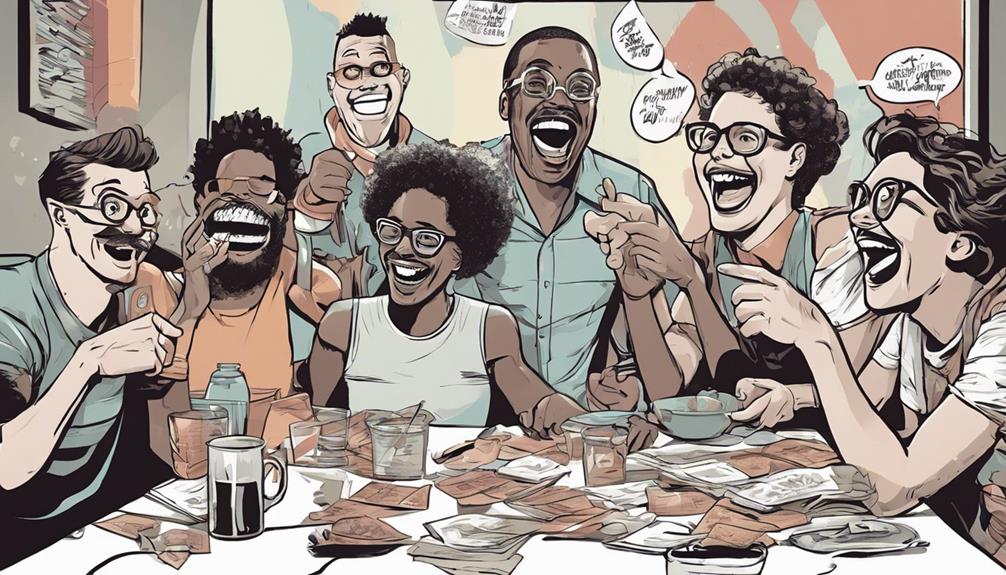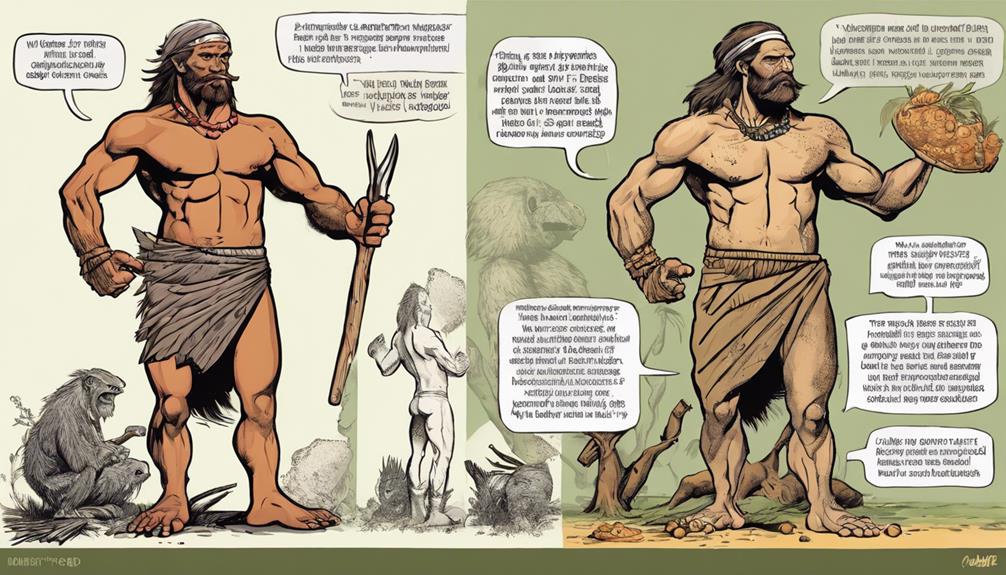Decoding dad jokes uncovers their roots in family bonding and playful wordplay, intentionally bad to elicit groans but promote togetherness. Dad humor thrives on unexpected punchlines, often hinting at dad’s superiority, resulting in shared laughter that strengthens social connections. Using lighthearted tools for connection, dad jokes break down barriers, bring joy to family interactions, and enhance parent-child relationships. Exceptional dad jokes, based on personal fatherhood experiences, deliver straightforward yet absurd punchlines that prompt immediate and authentic laughter. These jokes combine humor and family ties, affecting not only entertainment but also language acquisition, cognitive development, and familial unity.
Key Takeaways
- Dad jokes rely on incongruity and surprising punchlines for humor.
- They foster social bonds through shared laughter.
- Dad jokes serve as a tool for parent-child bonding.
- Great dad jokes stem from personal experiences and tailor humor for dads.
- Dad jokes aid in child development by enhancing language learning and cognitive growth.
Origins of Dad Jokes
The origins of dad jokes can be traced back to the playful and pun-filled interactions fathers have with their children, often serving as a source of lighthearted humor and bonding within the family dynamic. These jokes typically involve cringe-inducing wordplay, simple and silly puns that bring a smile to dads and a grimace to their children.
While they may seem like a form of weaponized humor, dad jokes are actually meant to be intentionally bad, evoking groans from the recipients. This unique style of humor plays a significant role in family bonding, allowing fathers to connect with their children through shared laughter and playful banter.
Dad jokes create a light-hearted atmosphere that fosters a sense of togetherness and joy within the family unit.
Science Behind Dad Humor
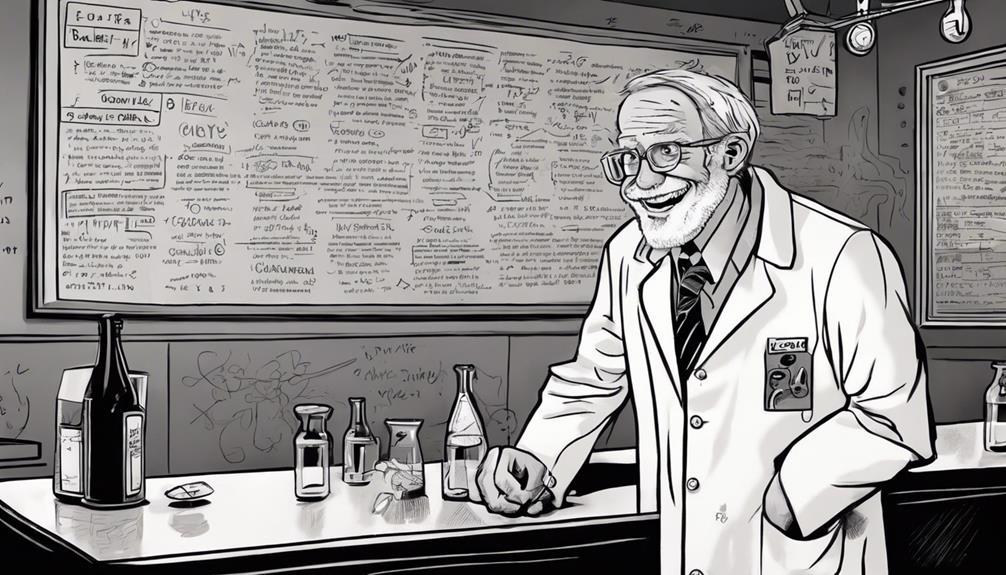
Exploring the psychological underpinnings of dad humor reveals intriguing insights into the cognitive processes and social dynamics at play in the creation and reception of dad jokes.
- Incongruity Theory: Dad jokes often rely on the element of surprise or incongruity, where the punchline deviates from the expected outcome, triggering laughter.
- Superiority Theory: Some dad jokes may involve a sense of superiority, where the humor comes from a perceived higher intellect or wit of the dad over the audience.
- Relief Theory: Dad jokes can serve as a form of tension release, providing a safe and light-hearted way to address serious or awkward topics.
- Social Bonding: Sharing dad jokes can strengthen social bonds, as laughter fosters a sense of connection and shared understanding among individuals.
Role in Parent-Child Bonding
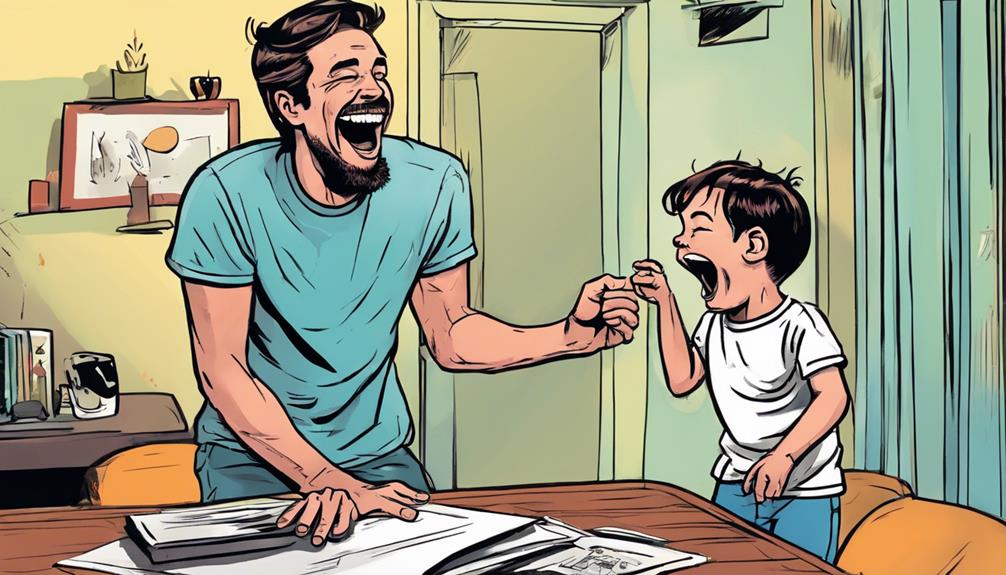
A significant aspect of parent-child bonding involves the sharing of dad jokes, which serve as a lighthearted tool for fostering connection and building rapport within the family unit.
Dad jokes create a shared experience between fathers and their children, promoting laughter and joy in everyday interactions. The light-hearted nature of dad jokes helps break down barriers, creating a comfortable and relaxed atmosphere where communication flows easily.
Characteristics of Great Dad Jokes
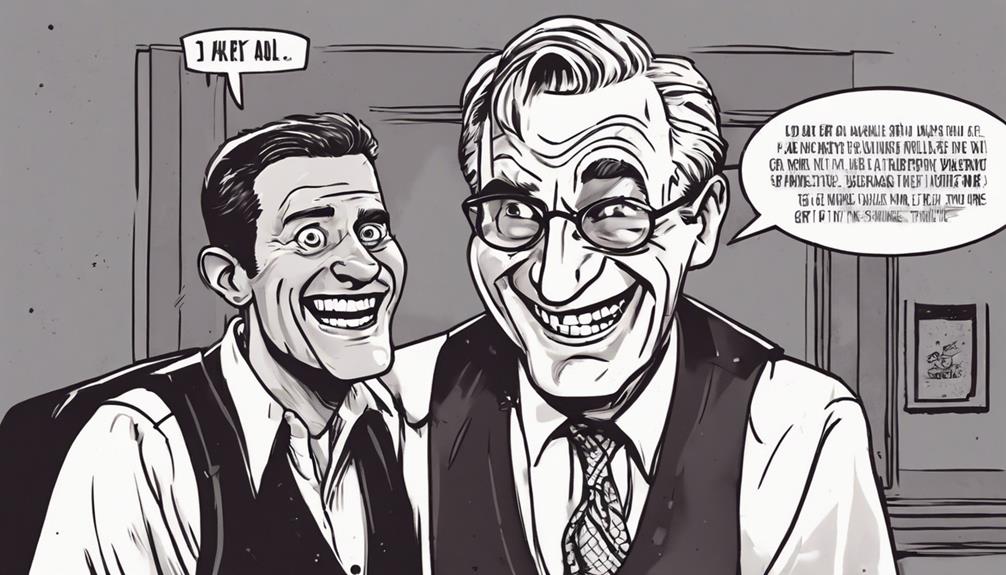
An essential aspect when evaluating great dad jokes is their ability to elicit genuine amusement and connection within the family dynamic.
To identify these exceptional dad jokes, consider the following characteristics:
- Uniqueness: Great dad jokes stem from personal experiences as a father, making them relatable and authentic.
- Obvious Punchline: The punchline should be clear yet absurd, prompting laughter through its sheer simplicity.
- Exclusive Humor: A good dad joke is tailored to appeal specifically to dads, creating a unique bond between father and child.
- Immediate Laughter: The instant chuckle or grin from the dad signifies the success of a great dad joke, solidifying the familial bond through shared humor.
Impact on Child Development
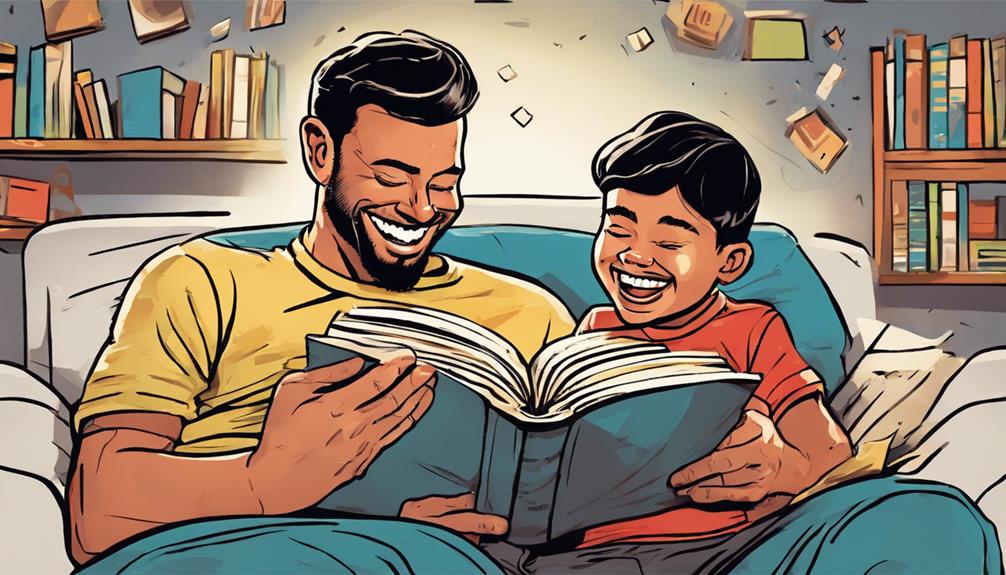
Studying the influence of dad jokes on child development reveals the intricate role humor plays in fostering linguistic skills and bonding within familial relationships. Dad jokes, with their playful wordplay and puns, not only elicit groans but also have a positive impact on children's language development. The interaction during these humorous exchanges helps children grasp linguistic nuances and enhances their comprehension skills. Moreover, sharing laughter over dad jokes strengthens the bond between fathers and their children, creating a joyful and memorable environment for growth and learning.
| Impact on Child Development | Description |
|---|---|
| Linguistic Development | Dad jokes aid in language learning through wordplay and humor. |
| Bonding with Children | Sharing laughter over dad jokes fosters stronger familial relationships. |
| Cognitive Development | Humorous interactions stimulate cognitive growth and creativity. |
Frequently Asked Questions
How Do Dad Jokes Compare to Other Types of Humor?
Dad jokes, characterized by cringe-inducing wordplay and simple puns, evoke mixed reactions. While often belittling, they serve as bonding tools, aiding in linguistic development. Unique to dads, these jokes offer a universal yet unique form of humor.
Are Dad Jokes Culturally Specific or Universal?
Dad jokes, with their simple wordplay and universal groan-inducing humor, bridge cultural divides making them a universal form of comedy. While rooted in dad life experiences, their appeal transcends cultural boundaries, fostering familial bonds worldwide.
Do Moms Tell Dad Jokes Too?
While the term "dad jokes" implies paternal origins, moms can certainly deliver pun-filled quips with finesse. Humor transcends gender roles, and moms may surprise with their wit and wordplay, adding laughter to family dynamics.
Can Dad Jokes Be Learned or Are They Innate?
Dad jokes can be both learned and innate. While some individuals may naturally possess a talent for crafting dad jokes due to personal experiences and humor preferences, others can develop this skill through practice and observation.
Is There a Correlation Between Dad Jokes and Intelligence?
There is no direct correlation between dad jokes and intelligence. Dad jokes are more about wordplay and humor rather than intellect. They serve as a form of light-hearted entertainment and bonding between fathers and their children.
Conclusion
To sum up, the intricate web of dad jokes serves as a cornerstone in the domain of family dynamics, humor, and parental guidance. Through the lens of linguistic play and witty wordplay, these jokes offer a unique avenue for fathers to connect with their children while fostering a sense of shared laughter and camaraderie.
How can we overlook the profound impact of dad jokes in shaping the humor and relationships within a family unit?

